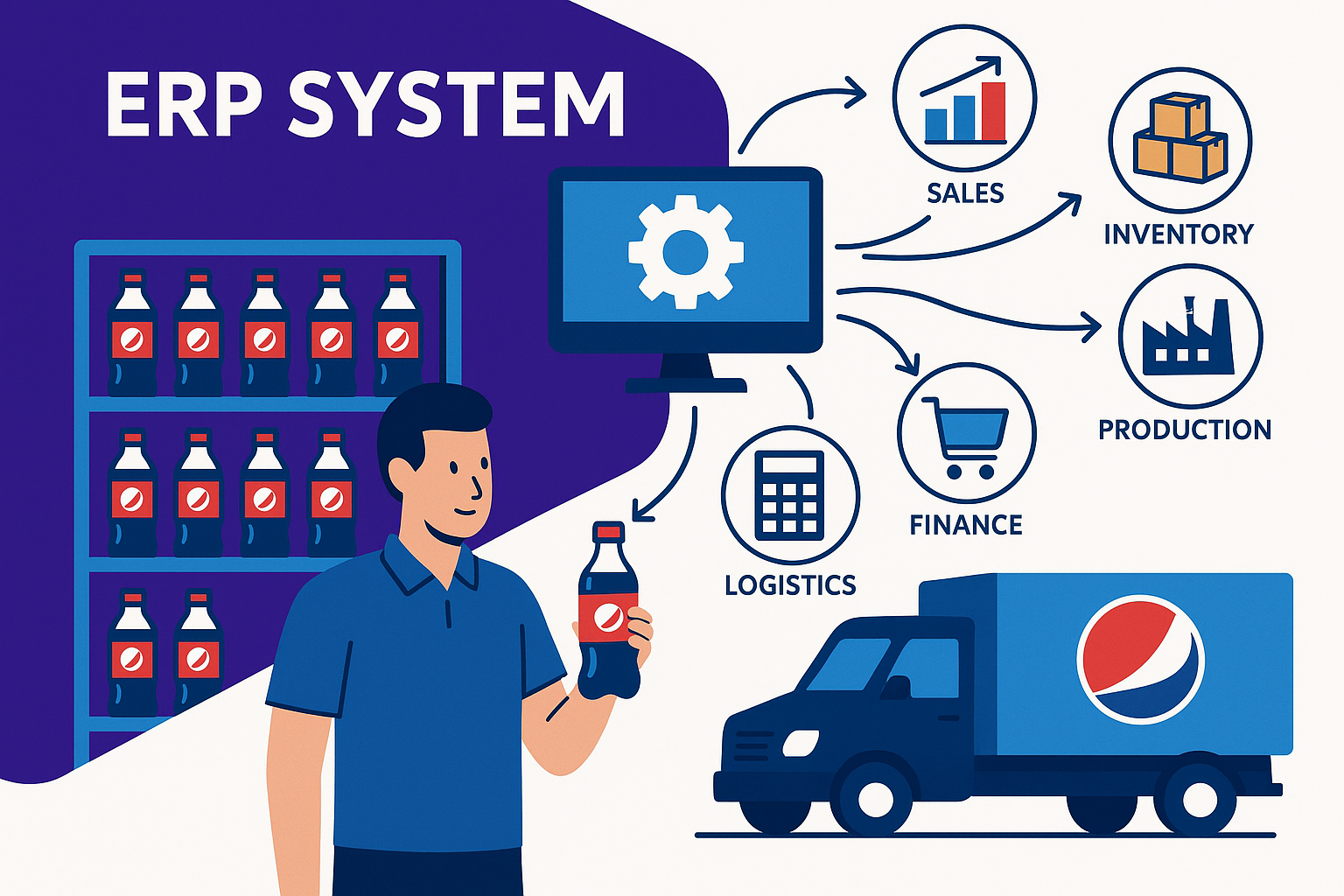Lesson Title: What is ERP?
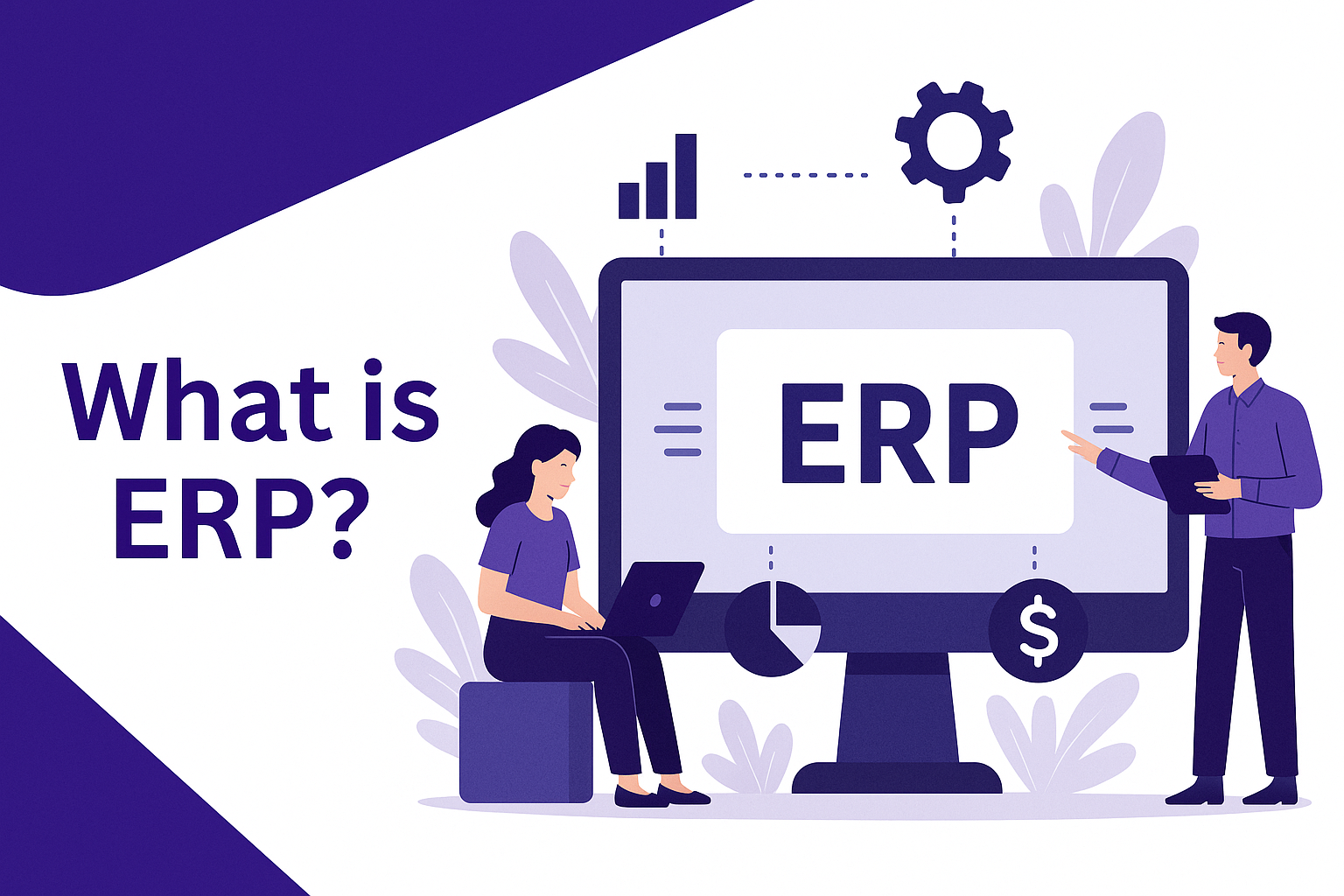
Lesson Description:
In this foundational lesson, you’ll explore Enterprise Resource Planning (ERP), discovering how businesses like Pepsi leverage ERP systems to seamlessly integrate various operations. Through relatable examples, you’ll understand ERP’s critical role in coordinating activities across departments, enhancing accuracy, improving operational efficiency, and enabling businesses to respond swiftly to market dynamics.
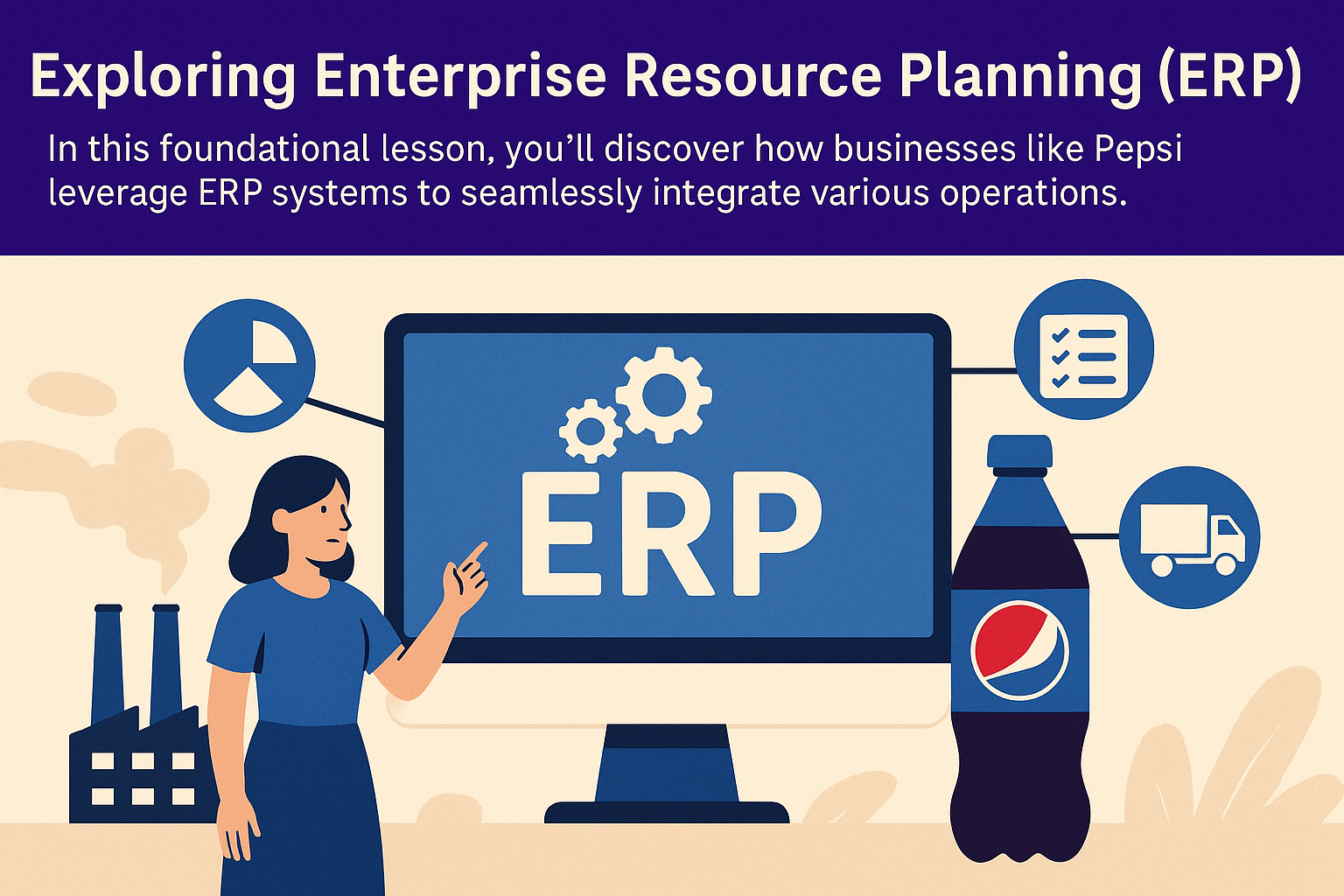
Lesson Learning Objectives:
-
Clearly define Enterprise Resource Planning (ERP) in accessible, practical terms.
-
Understand the fundamental importance and benefits of ERP systems in modern business operations.
-
Examine key ERP functions, benefits, and real-world impacts illustrated through comprehensive PepsiCo scenarios.
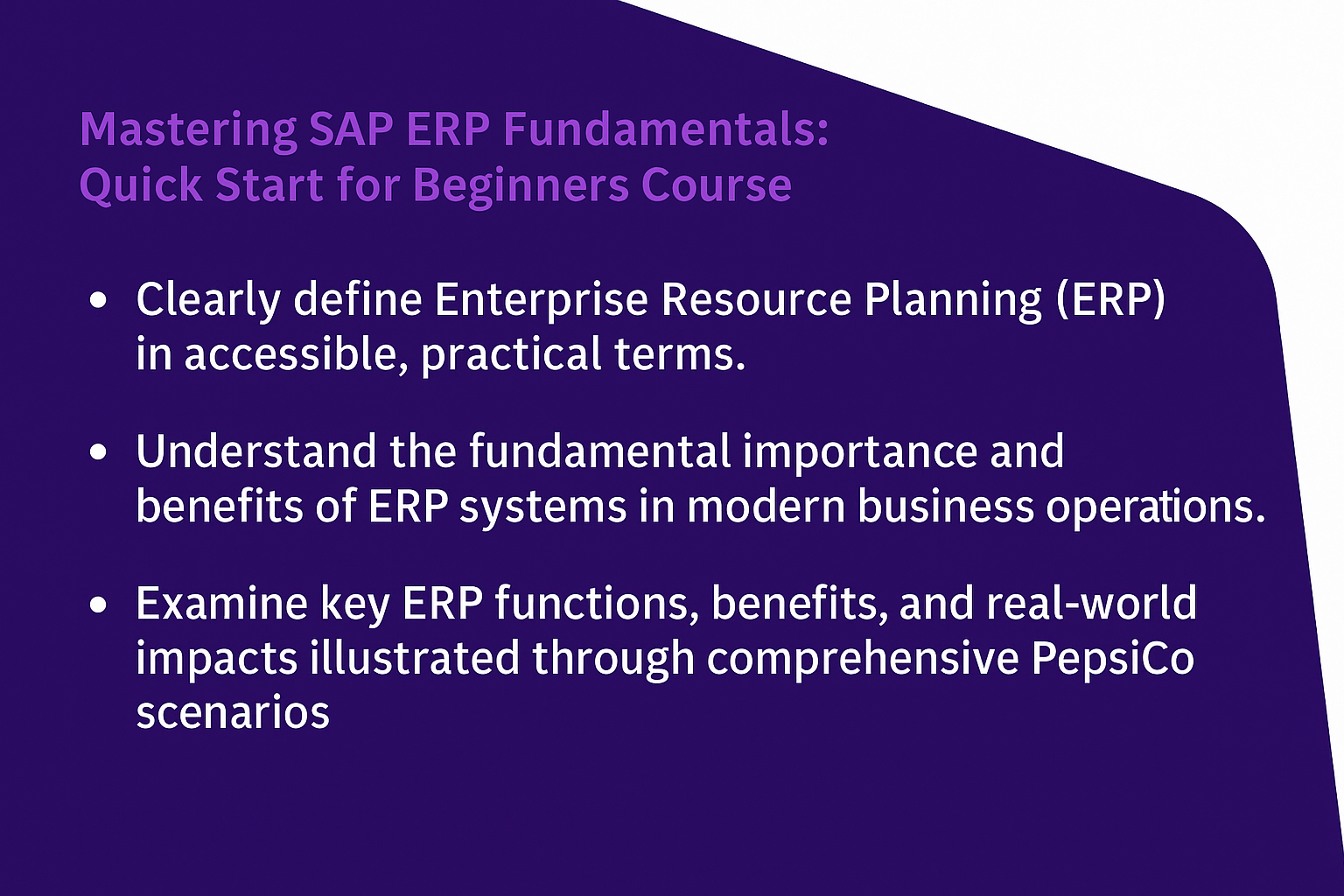
Terminology:
-
ERP (Enterprise Resource Planning): Software that integrates all essential business processes (finance, production, sales, procurement, etc.) into one unified system.
-
Integration: The process of merging different business operations and datasets into a single cohesive system.
-
SAP ERP: ERP software developed by SAP SE, used globally to streamline complex business operations.
-
Centralized System: A single, unified platform providing consistent data access across an organization.
-
Real-time Visibility: Instant access to current operational data, allowing immediate decision-making and responsiveness.
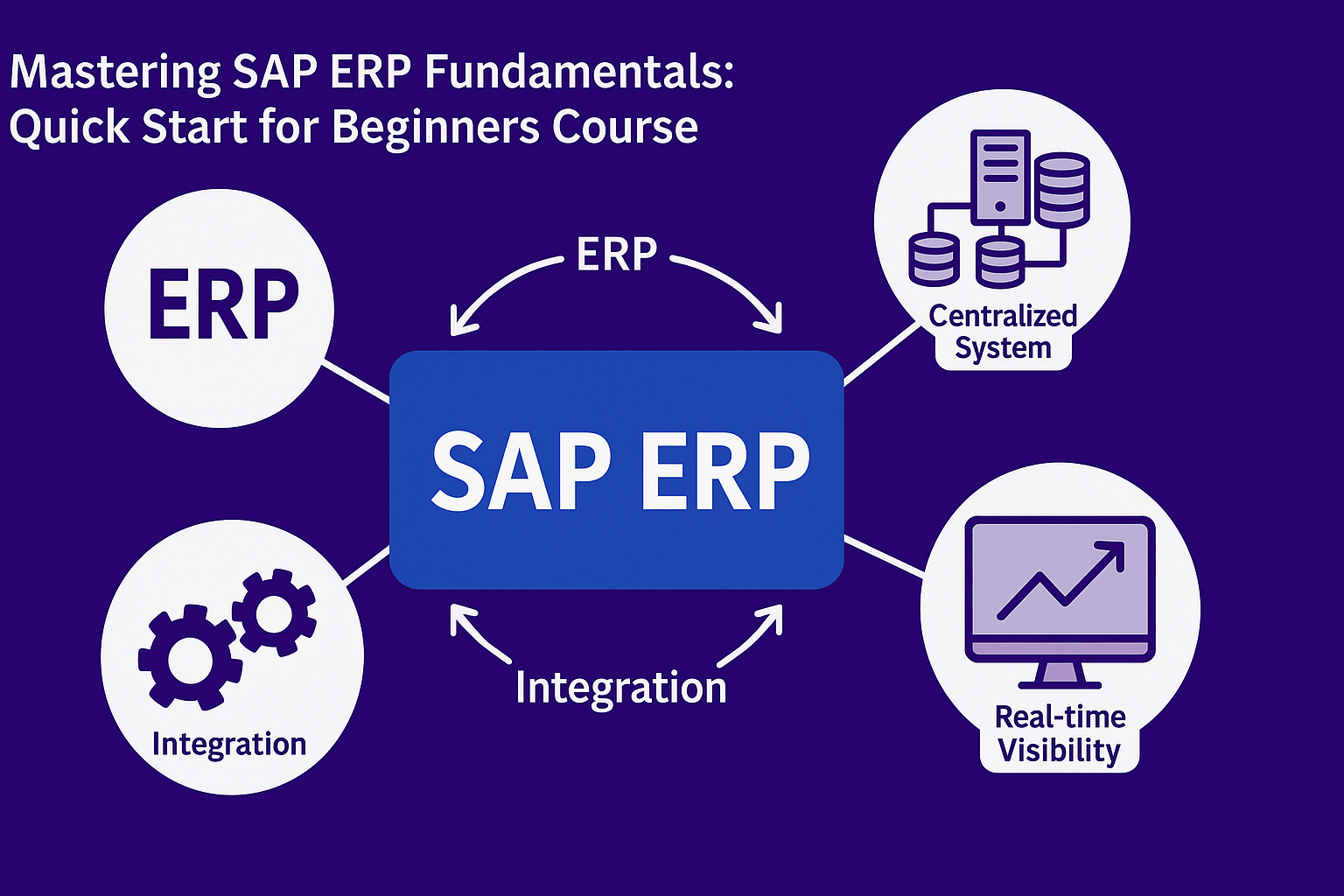
Lesson Key Points:
✅ Understanding ERP Clearly:
-
ERP is software designed to combine all major business functions into one unified platform, creating a seamless flow of data and processes across departments.
-
Think of ERP as the central nervous system of a company, like Pepsi, integrating sales, production, finance, inventory, and procurement into one coherent system.
-
Unlike isolated tools or spreadsheets, ERP ensures that everyone in the business accesses the same consistent, up-to-date information.
✅ Significance of ERP for Businesses:
-
ERP eliminates fragmented data and disconnected workflows, significantly reducing mistakes, delays, redundant activities, and manual data entry.
-
It provides instant data access, allowing businesses to respond quickly and effectively to changing market conditions or internal demands.
-
ERP streamlines operations by automating workflows and providing real-time visibility, enabling better, faster, and more accurate decision-making.
✅ Practical ERP Functions Explained (Pepsi Example):
-
Inventory and Sales Coordination: When stores place orders, ERP instantly checks inventory levels, allocates products from various warehouses, and alerts production teams if restocking is needed.
-
Production and Procurement Integration: ERP automatically triggers production plans or procurement actions based on inventory thresholds and demand forecasts.
-
Financial Automation: Sales transactions are automatically recorded and processed in real-time, simplifying financial reporting and revenue tracking.
✅ Expanded Real-world Scenario (Detailed PepsiCo Example):
Imagine a large supermarket chain placing an order for 1,000 cases of Pepsi. The moment this order is entered into Pepsi’s SAP ERP:
-
Instant Inventory Management: ERP checks inventory across warehouses (e.g., New Jersey and Atlanta), allocates available stock automatically, and updates inventory records in real-time.
-
Automated Shipping Preparation: ERP immediately notifies warehouse teams to prepare and schedule shipments. The logistics team receives instant notifications along with auto-generated documents (delivery notes, shipping labels, packing lists).
-
Real-time Production Adjustments: ERP detects that stock is dropping below threshold levels and instantly initiates new production orders at the appropriate facility. The manufacturing team immediately sees this production order, ensuring swift replenishment.
-
Efficient Procurement Process: If more ingredients (like sugar or syrup) are required for production, ERP automatically triggers purchase requisitions, alerting procurement teams to restock quickly.
-
Seamless Financial Transactions: Once shipped, ERP generates invoices automatically and updates Pepsi’s financial accounts in real-time. This immediate financial recording prevents manual errors and accelerates revenue recognition processes.
✅ Importance of Integration:
-
ERP’s integrated platform significantly reduces the risk of communication breakdowns, delays, and operational errors, making complex business operations smoother and more efficient.
-
Information flows automatically from sales to inventory, production, logistics, procurement, and finance, enhancing collaboration and operational clarity.
-
Managers and teams share a unified, real-time view of operations, which enables proactive adjustments and strategic planning.
✅ Benefits of ERP for Large-Scale Operations:
-
ERP is essential for managing the complexity and scale of global businesses like Pepsi, operating in hundreds of regions and managing thousands of products.
-
Real-time integrated data significantly reduces waste, prevents shortages or overproduction, and allows faster adaptation to market changes or disruptions.
-
ERP’s comprehensive dashboards and reporting tools help Pepsi identify trends, optimize resource allocation, manage inventory proactively, and enhance customer satisfaction.
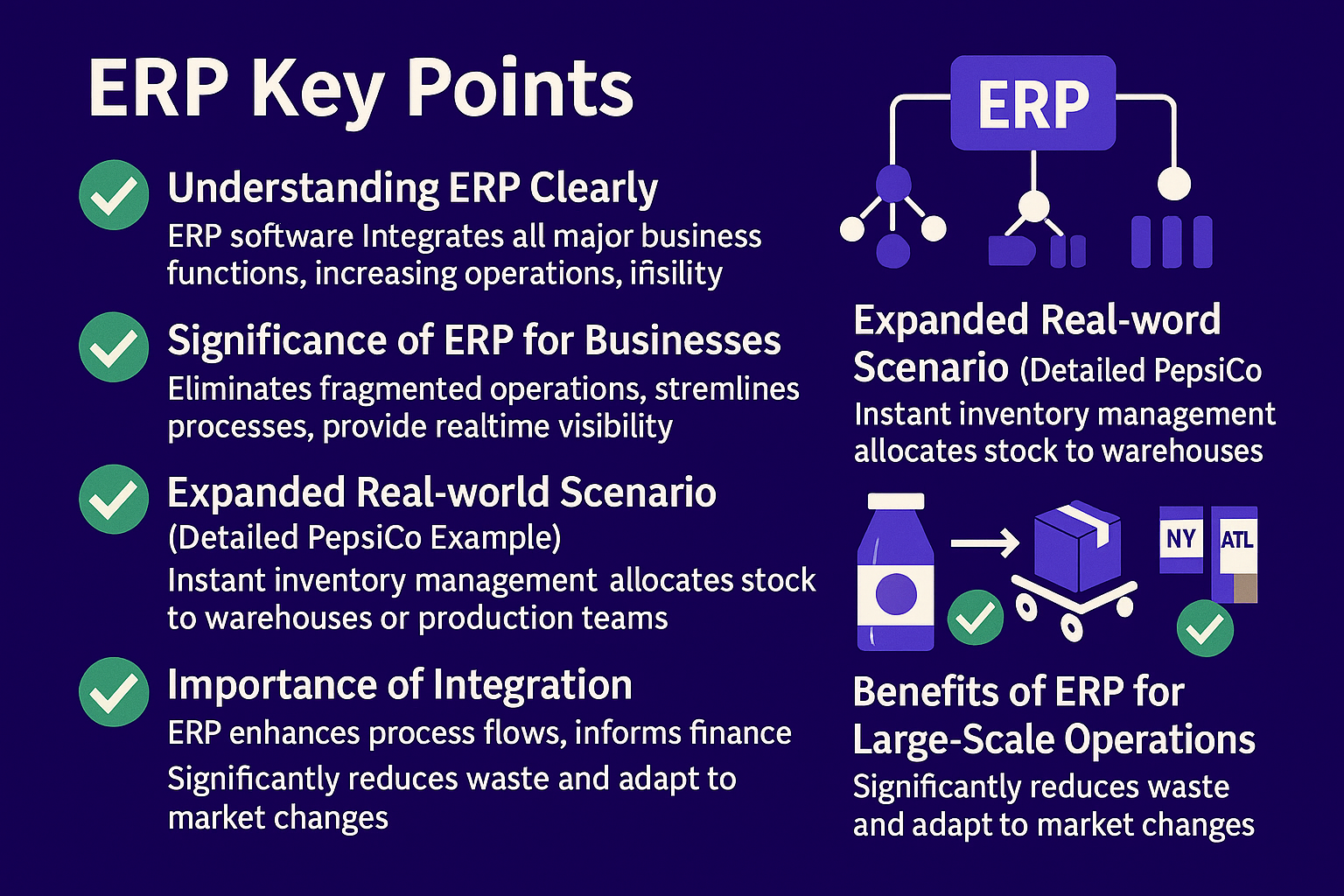
Lesson Summary:
You have deeply explored ERP systems as the integrative digital backbone essential for modern businesses, exemplified vividly through PepsiCo’s streamlined operations. ERP connects various departments—sales, inventory, production, procurement, logistics, and finance—into one coherent system, dramatically increasing operational efficiency, accuracy, and responsiveness. By leveraging real-time data and automation, ERP empowers businesses to respond swiftly and intelligently, improving performance and customer satisfaction.
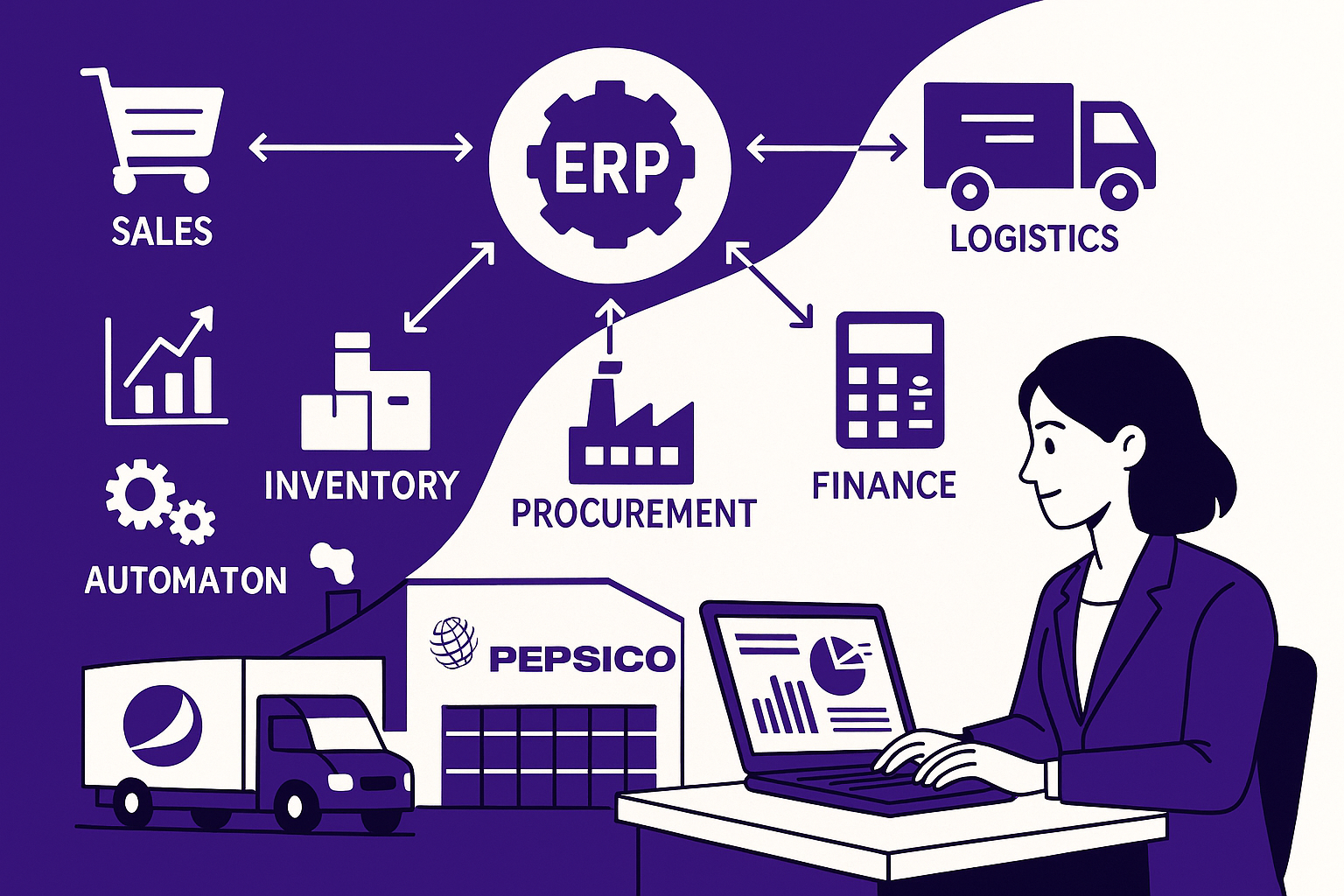
Lesson Takeaways:
-
ERP acts as the central operational framework integrating diverse business processes into a single system, significantly boosting efficiency and reducing errors.
-
Real-time integrated information from ERP ensures accuracy, accelerates decision-making, and enables organizations to adapt quickly to market demands and internal shifts.
-
Companies like Pepsi rely on ERP to manage global complexity, streamline workflows, avoid disruptions, and optimize operations, directly translating into competitive advantages.
-
Through comprehensive integration, ERP transforms complex, fragmented business operations into smooth, automated, and coordinated workflows, enhancing overall organizational effectiveness.
